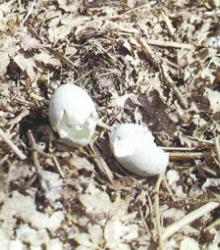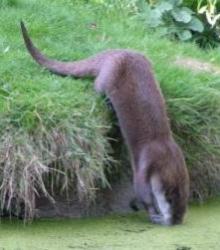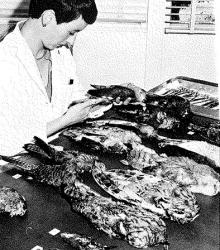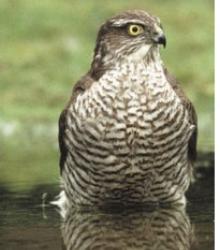- The PBMS was started 50 years ago by the Nature Conservancy. It is, to our knowledge, the longest running scheme of its kind anywhere in the world.
- In the 1960s there were serious concerns over the effects of organochlorine insecticides and organomercury fungicides on birds and mammals.
- PBMS monitoring and experimental and ecological studies demonstrated adverse effects of organochlorine insecticides (particularly dieldrin and DDT) on predatory bird populations in Britain.
- Our work contributed to the scientific evidence that led to bans on agricultural use of these insecticides in Britain and elsewhere. It also demonstrated the effectiveness of the bans by charting the post-ban decline in dieldrin and DDT residues in eggs and bird bodies.
- The PBMS now monitors a variety of other contaminants of current interest. These contaminants include heavy metals such as lead, flame retardants, perfluorinated compounds and rodenticides.
- We work with a diverse range of stakeholders and partners and, at a national scale, we collaborate closely with our partner schemes in the WILDCOMS network.
- Our work on monitoring rodenticides in barn owls and red kites is used to assess the effectiveness of the UK Anticoagulant Rodenticide Stewardship Scheme in reducing the unintentional exposure of non-target species
- The outputs from all of our work is described in recent reports and publications that can be found here
- The PBMS is currently working with European partners to investigate the potential of pan-European monitoring of chemical contamination using birds of prey as environmental sentinels. We are one of the leaders in the European Raptor Biomonitoring Facility network and a partner in the EU-LIFE funded project called “Systematic use of contaminant data from apex predators and their prey in chemicals management (LIFE-APEX)
- A simple history of the work of the PBMS was published in NERC’s Planet Earth publication and can be found here
History timeline
History timeline
How can you help?
GDPR, Privacy Policy and Cookies
The PBMS website is provided by the UK Centre for Ecology & Hydrology under the terms of the UKCEH Privacy policy which sets out the basis on which any personal data we collect from you, or that you provide to us, will be processed by us. Information collected by the PBMS will be used for scientific purposes only under the GDPR lawful basis of Legitimate interests, not shared with any other party and retained for the duration of the project. Cookies may be set on your computer when you visit this site. What are Cookies?














